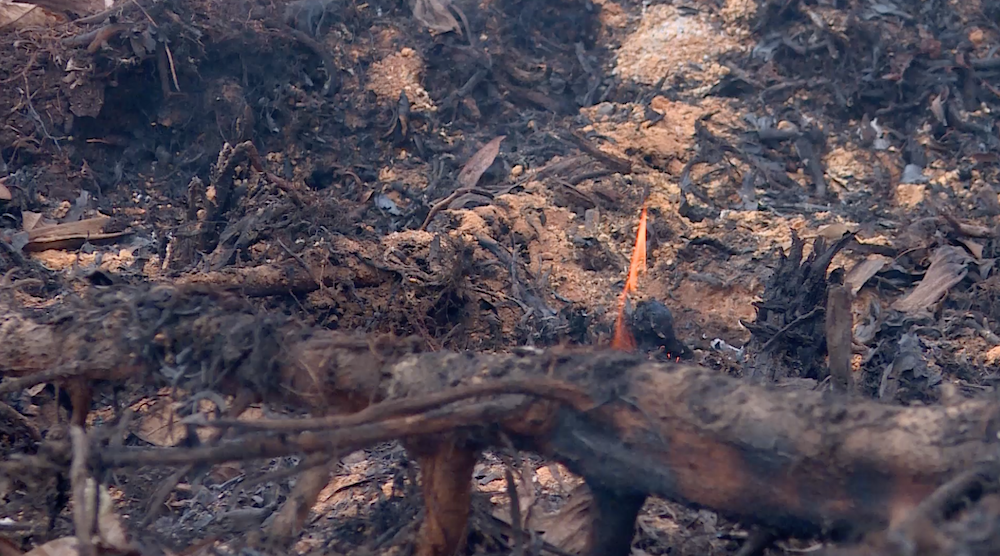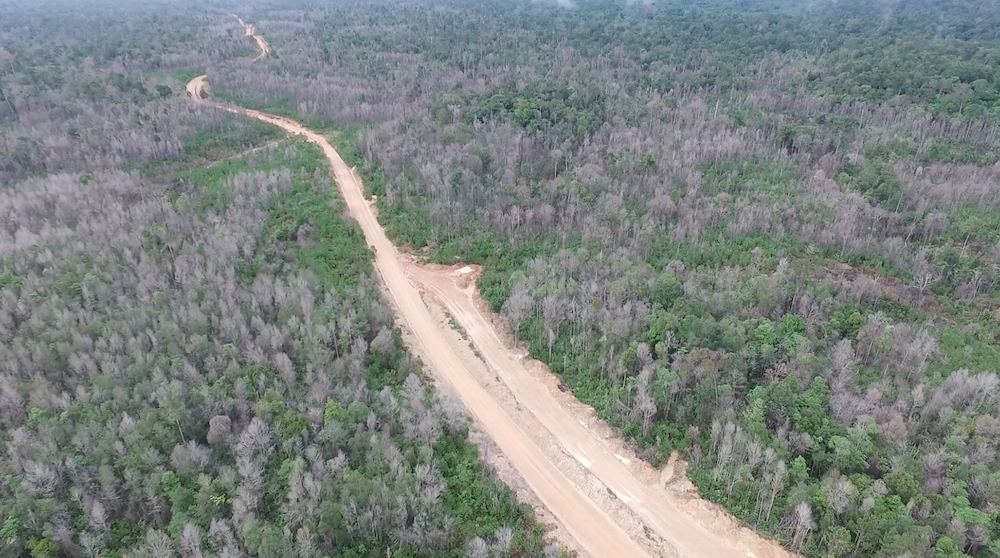02:29

In 2015, Indonesia suffered its worst forest fires crisis. As thick yellow fog covered much of Central Kalimantan, the country's wildlife, ecosystems and locals' livelihoods were heavily disrupted. The government calls that day a disaster for Indonesia's environment and economy, as the fires cost Indonesia an estimated 16 billion U.S. dollars in losses.
Indonesia is not new to coping with deforestation. As a climate justice campaigner, Yuyun Harmono has been trying to put a stop to it.
"From 1990 to 2018, there were around 0.5 million hectares of deforestation rate in Indonesia. It's a problem for us and we need to tackle it … because we made a commitment under the Paris Agreement that we will reduce carbon emissions especially from the land sector," said Harmono.

Indonesia is working to reduce carbon emissions by 29 percent by 2030. /CGTN
Indonesia is working to reduce carbon emissions by 29 percent by 2030. /CGTN
The Paris Agreement outlines the mitigation of greenhouse gas emissions, which Indonesia is continuously working on.
The 2015 crisis was a wake-up call for President Joko Widodo's government. Immediately after that crisis, his government began to develop policies to reduce deforestation and its effects on Indonesia's forests.
This year, the country is beginning to see a glimpse of hope for the environment. According to Global Forest Watch, Indonesia lost just 300,000 hectares of primary forest in 2019, its lowest figure since 2003.

Indonesia lost 300,000 hectares of forest in 2019, its lowest since 2003. /CGTN
Indonesia lost 300,000 hectares of forest in 2019, its lowest since 2003. /CGTN
The significant drop is a result of successful forest protection policies such as the moratorium on new oil palm plantations, where new licenses are temporarily banned. However, right now the policy is only valid for three years. Experts say that is not enough time to restore Indonesia's forests.
"The government must extend the palm oil moratorium. Right now it is valid for three years only. We believe it should be more than 25 years to guarantee that there is no more expansion, especially for the big plantations to enter the forest," said Harmono.
Aside from that policy, the government has also established the Peatland Restoration Agency to continue to reduce carbon emissions in the country.
But Harmono says there's a huge pressure on the government right now to do even more. Reducing the weight of deforestation is not easy nor is it an overnight task, and Harmono believes the government still has a lot to do in terms of reducing forest degradation as well as peatland fires.

Indonesia is one of the largest producers of palm oil, directly employing 50 million people in the industry. /CGTN
Indonesia is one of the largest producers of palm oil, directly employing 50 million people in the industry. /CGTN
Ruandha Sugadirman monitors these forests very closely and he says the government is determined now more than ever to create a sustainable future for Indonesia.
"We have a monitoring system called SiPongi, using NASA's Terra Aqua satellite to connect all our hotspots across Indonesia. We have recorded 1,845 points of forest fires, which has significantly reduced by 90 percent since last year. From 2019 to 2020, we have also reduced the number of forest fires by 64 percent," said Sugadirman.
Recently, Indonesia secured a total of 156 million U.S. dollars from Norway and the Green Climate Fund for beginning to reduce deforestation and avoiding carbon dioxide emissions.
"Indonesia managed to showed the world that it could decrease its carbon emission by 20.3 million in a short amount of time. Our aim is to decrease emissions by 29 percent by 2030 and we have the possibility to reduce to a further 41 percent if we gain solid support from the international community," said Sugadirman.
The fight against deforestation continues to remain a priority even at a time when resources are extremely limited due to the COVID-19 outbreak in the country. The Environment Ministry says they will continue their hard work on the ground to prevent any threat of fires this year.